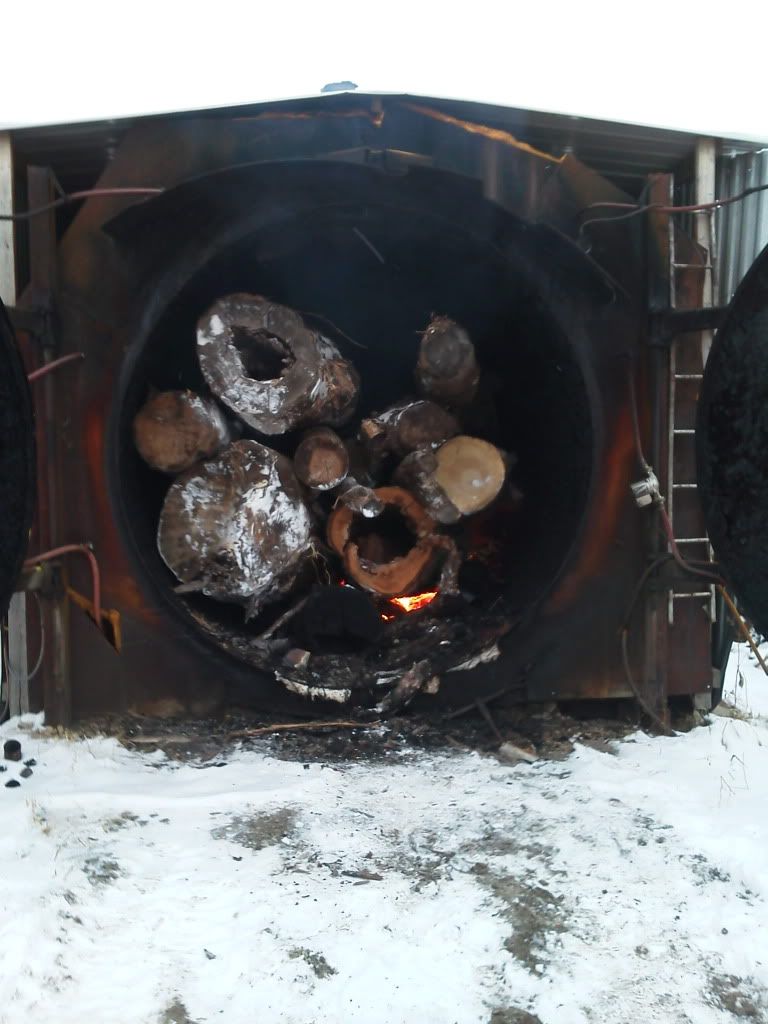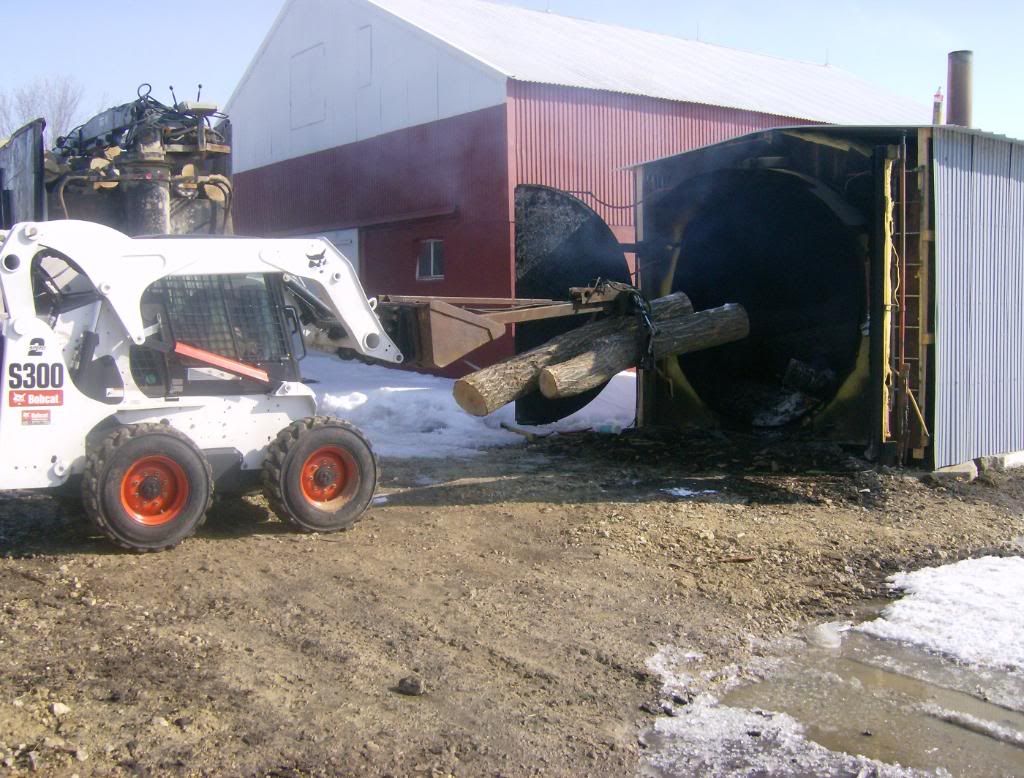AIM
Addicted to ArboristSite
Well I've been designing in my head my next OWB. My current one works Ok but has many design flaws in my opinion. The biggest flaw is the size of the fire box. 24" diam 40" long. My next one will be MUCH larger.
The biggest question/concern for my next one is how much water.
If I can heat my house with lets say 100 gallons. Why would I want more? Wouldn't I just be heating water that I never needed.
I guess I'm thinking along these lines.
If you were a single guy living alone would it make sense to have an 80 gallon HWH for 1 shower a day. Of course not. You would be using 20 gallons a day but yet keeping 60 gallons hot that you never used.
I don't see why this wouldn't apply to my OWB.
Another thought is this.
Water by nature WANTS to lose heat. The instant the heat source is removed the water starts losing heat. The more water you have the more heat loss your gonna get regardless of how well insulated your system is.
And yet another thought.
Large quantities of water will result in fewer BURN times. This I agree with.
(BURN= draft inducer ON)
BUT...
The burn times will be LONGER to heat the larger capacity where as less gallons will require more frequent burns.
Why would 10 short burns be less efficient than 5 long burns?
In my thinking the same amount of wood would be consumed but if you are heating more water than you need then you are losing efficiency. (this one is kinda hard to explain)
EXAMPLE: 5- 20 minute burns to heat 300 gallons. MAYBE only 7 -10 minute burns to heat 150 gallons.
Lets put this in a grand scale.
Let's say you have a boiler system big enough to heat a school. Take that same system and heat ONLY your house. Would it be efficient?
Am I thinking this through properly?
The biggest question/concern for my next one is how much water.
If I can heat my house with lets say 100 gallons. Why would I want more? Wouldn't I just be heating water that I never needed.
I guess I'm thinking along these lines.
If you were a single guy living alone would it make sense to have an 80 gallon HWH for 1 shower a day. Of course not. You would be using 20 gallons a day but yet keeping 60 gallons hot that you never used.
I don't see why this wouldn't apply to my OWB.
Another thought is this.
Water by nature WANTS to lose heat. The instant the heat source is removed the water starts losing heat. The more water you have the more heat loss your gonna get regardless of how well insulated your system is.
And yet another thought.
Large quantities of water will result in fewer BURN times. This I agree with.
(BURN= draft inducer ON)
BUT...
The burn times will be LONGER to heat the larger capacity where as less gallons will require more frequent burns.
Why would 10 short burns be less efficient than 5 long burns?
In my thinking the same amount of wood would be consumed but if you are heating more water than you need then you are losing efficiency. (this one is kinda hard to explain)
EXAMPLE: 5- 20 minute burns to heat 300 gallons. MAYBE only 7 -10 minute burns to heat 150 gallons.
Lets put this in a grand scale.
Let's say you have a boiler system big enough to heat a school. Take that same system and heat ONLY your house. Would it be efficient?
Am I thinking this through properly?
Last edited:






